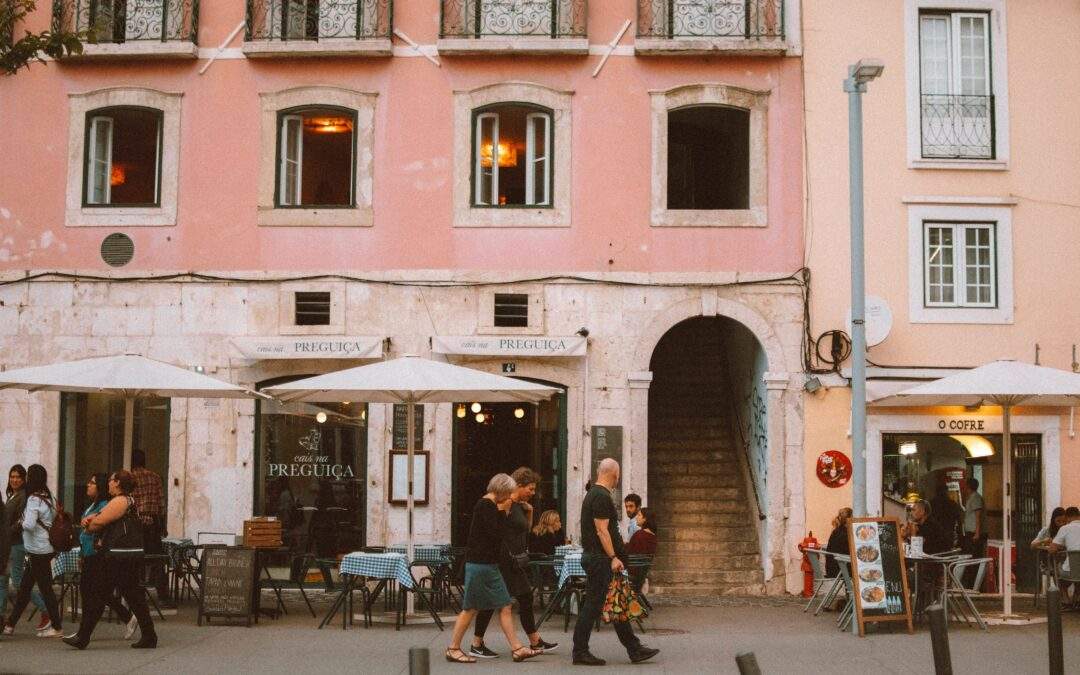This week’s post is part 2 of Lessons learnt after a week of being in flow in Lisbon.
What I mean by being ‘in flow’, is when your awareness is in the present moment. You’re not in your mind planning, strategising or thinking about the past or future.
This was one of the main lessons learnt; ‘Letting go of control’, which I wrote about in the first instalment, if you missed that post you can read it here.
Today I’m sharing the last few insights I had on the trip:
Zero pressures or obligations
Living in the moment and being in flow usually happens for a few reasons:
1. You’re completely immersed in something you’re doing – this often happens with a piece of work or a hobby.
2. When you’re consciously practising mindfulness – meditation for example.
3. The other way is when you have no pressures or obligations because it allows you to let go and be in the moment, rather than in your thinking brain. This is especially effective when you’re in a new environment because you’re instinctively far more focussed on all the newness.
It’s so important to make time for this third type of ‘flow’ state on a regular basis.
There are the obvious wellbeing benefits; it’s essentially downtime for your mental and physical wellbeing, something we all need in the modern-day world where most people are living with some degree of chronic stress.
But in addition to wellbeing, it’s these moments where people typically experience unexpected insights, brain-wave moments, and richer perspectives. A mindful state allows space for these to surface from the subconscious mind.
You should look at these moments of ‘flow’ as essential for your wellbeing, your perceptions and your performance.
Distraction as tool
I am more of a nervous flyer since experiencing a bad flight a few years ago. So, I purposely made myself do something while flying that I knew I’d be really engaged with to distract myself.
Then, as luck would have it, the man sitting next to me started talking to me and we ended up having an interesting conversation for over an hour and I didn’t worry about the flying at all whilst we were talking.
The lesson here is that sometimes distraction can be a really powerful way to reduce worry, rumination and anxiety.
I wouldn’t recommend this tool if the issue is long-standing, but if there’s a stressor that’s more short-term, something you have no control over – like waiting for an exam or test result, for example. This type of distraction tool can be very effective – you purposely shift your attention to something else engaging.
Making more of an effort with clothing
I noticed that people in Lisbon are generally quite smart and well-dressed. It reminded me of how I’ve been wearing far more ‘leisurewear’ since the pandemic started, and I’ve stopped dressing up as much as I used to unless I’m going somewhere specific. Basically, I’ve become quite lazy and now typically use about 5% of my wardrobe!
Clothing can really shift my mood and confidence – seeing people making more effort with their everyday outfits has encouraged me to do the same now that I’m back.
If you feel you might have also unknowingly got into a rut with your outfits since the pandemic, try wearing the dressier, smarter or more special items in your wardrobe and then see if you notice a positive difference in how you feel!
Kate x


